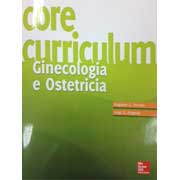69. Bowel Surgery in Gynaecological Oncology
Atti Congresso Second Wold Week of Professional Updating in Surgery and in Surgical and Oncological
Disciplines of the University of Milan. Milan, July 15-21 1990. Vol. IX “Gynecology and Urology”. Monduzzi Ed. pag. 45-49
( in coll. M. Dindelli, P. Guarnerio, M. Di Terlizzi, A. Ferrari )
Summary: Between 1970 to 1989 we made 261 interventions interesting gastro-intestinal tract for gynecological oncology. We divided patients in 3 groups according to operatory indications: group A patients submitted to demolitive surgery ( Primary, post-adjuvant radiotherapy, for relapse ) (116 cases); group B patients affected with radiotherapic complications (75 cases); group C patients operated for secondary bowel obstructions caused by neoplastic relapse (70 cases). For each patients we valued site of primary tumor, indication to intervention, kind of surgery, preoperatory therapy and immediate or tardive complications. In group A 87 petients (75%) were submitted to exenteration and in 29 cases (25%) intestinal resection was necessary. Early post-operative complications were observed in 51.7% of 87 patients submitted to exenteration. Mortality during hospitalizzation interested 8 patients (9.2%). Five-years survival was estimated as 25.3% (22 cases). In group B (75 cases ), 56 colostomies (74.7%) were performed for foecal fistulae, obstructions and pelvic radionecrosi. Nine patients died during hospitalizzation. Five years survival was about 35%. Patients of group C (70) were operated for intestinal obstruction caused by neoplastic perseverance. Colostomy derivation was performed in 42 cases (60%). All patients of group C died: 34 (48.6%) died within 60 days after operation, 22 patients (31.4%) within 12 months and 14 women (20%) had a survival superior to one year.
